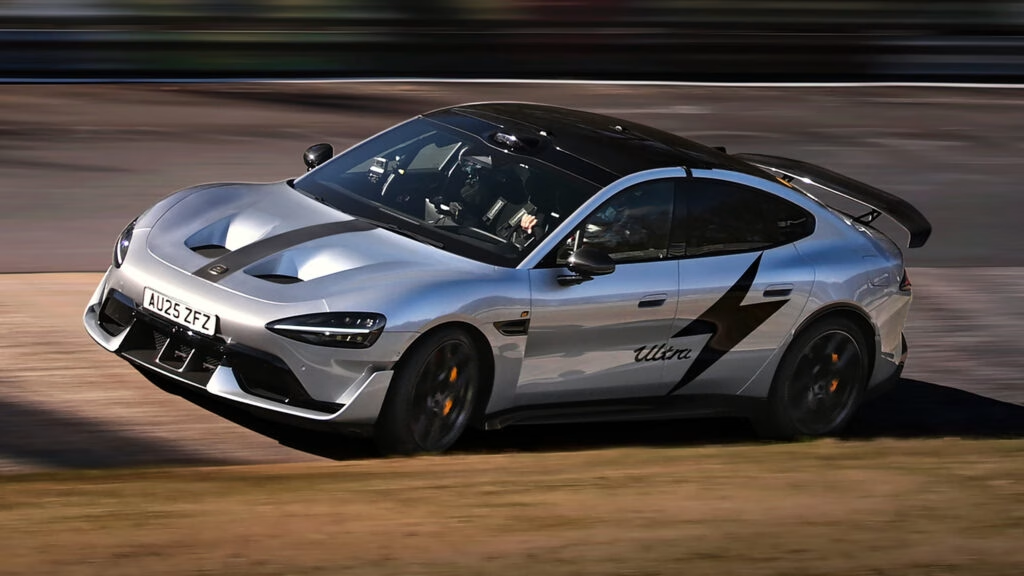Xiaomi has made quite a splash in the automotive world, and it’s not just about smartphones anymore. The company recently unveiled the production version of its SU7 Ultra electric sedan, and it’s already making headlines for its impressive performance on the legendary Nurburgring racetrack. With a lap time of 7:04.957, the SU7 Ultra has officially claimed the title of the fastest production electric vehicle at this iconic circuit, outpacing some serious competitors.
How Does the SU7 Ultra Compare to Other EVs?
While the SU7 Ultra’s time is 18 seconds slower than the prototype version, which boasted a stripped-down design and enhanced aerodynamics, it still managed to surpass the likes of the Rimac Nevera and the Porsche Taycan Turbo GT. The Rimac clocked in at 7:05.298, while the Taycan finished at 7:07.55. This performance is particularly noteworthy considering Xiaomi is primarily known for its consumer electronics, not high-performance vehicles.
What’s Under the Hood?
The SU7 Ultra is powered by a tri-motor setup that delivers a staggering 1,527 horsepower and 1,306 lb-ft of torque. This power translates to a jaw-dropping acceleration of 0 to 100 km/h (0-62 mph) in just 1.89 seconds. However, it’s interesting to note that owners don’t get the full horsepower right off the bat. By default, the car operates at around 888 hp, with the potential to unlock the full power after completing a qualifying lap on a Xiaomi-approved track. This unique feature adds an element of gamification to driving, encouraging owners to test their skills.
What Makes the SU7 Ultra Stand Out?
One of the most compelling aspects of the SU7 Ultra is its price point. Starting at approximately ¥529,000 (around $73,600) in China, it offers hypercar-level performance at a fraction of the cost of competitors like the Porsche Taycan Turbo GT, which starts at about ¥1,998,000 ($278,000). This pricing strategy positions Xiaomi as a serious contender in the electric vehicle market, appealing to consumers who want high performance without breaking the bank.
Xiaomi’s Future in the Automotive Space
Xiaomi’s CEO, Lei Jun, hinted that this won’t be the last we see of the company at the Nurburgring, suggesting a commitment to further development in the automotive sector. The company even released an onboard video of the record-setting lap, showcasing the SU7 Ultra reaching speeds of 345 km/h (214 mph), just shy of its claimed top speed of 350 km/h (218 mph). This transparency not only builds excitement but also establishes credibility in a market that values performance data.
What’s Next for Electric Vehicles?
The SU7 Ultra’s success raises intriguing questions about the future of electric vehicles. As more tech companies like Xiaomi enter the automotive arena, we can expect innovation to accelerate. The blending of technology and performance in vehicles could lead to exciting developments, making electric cars more appealing to a broader audience.
The big takeaway? Xiaomi’s venture into electric vehicles isn’t just about speed; it’s about redefining what consumers can expect from a car. With a focus on performance, affordability, and innovative features, the SU7 Ultra is setting a new standard in the EV market. If you’re considering an electric vehicle, keep an eye on Xiaomi—it might just surprise you.

